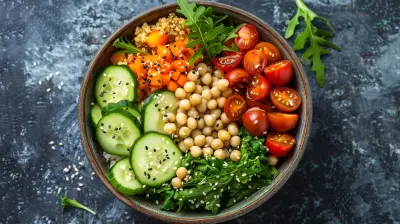How to Build Muscle with Plant-Based Proteins
18 May 2025
Building muscle on a plant-based diet might sound challenging, but guess what? It’s totally doable! You don’t need to rely on animal products to get strong and sculpted. With the right plant-based protein sources, a solid meal plan, and a strategic workout routine, you can pack on muscle just as effectively as someone following a traditional diet.
So, if you're looking to gain muscle while staying plant-powered, this guide will walk you through everything you need to know.
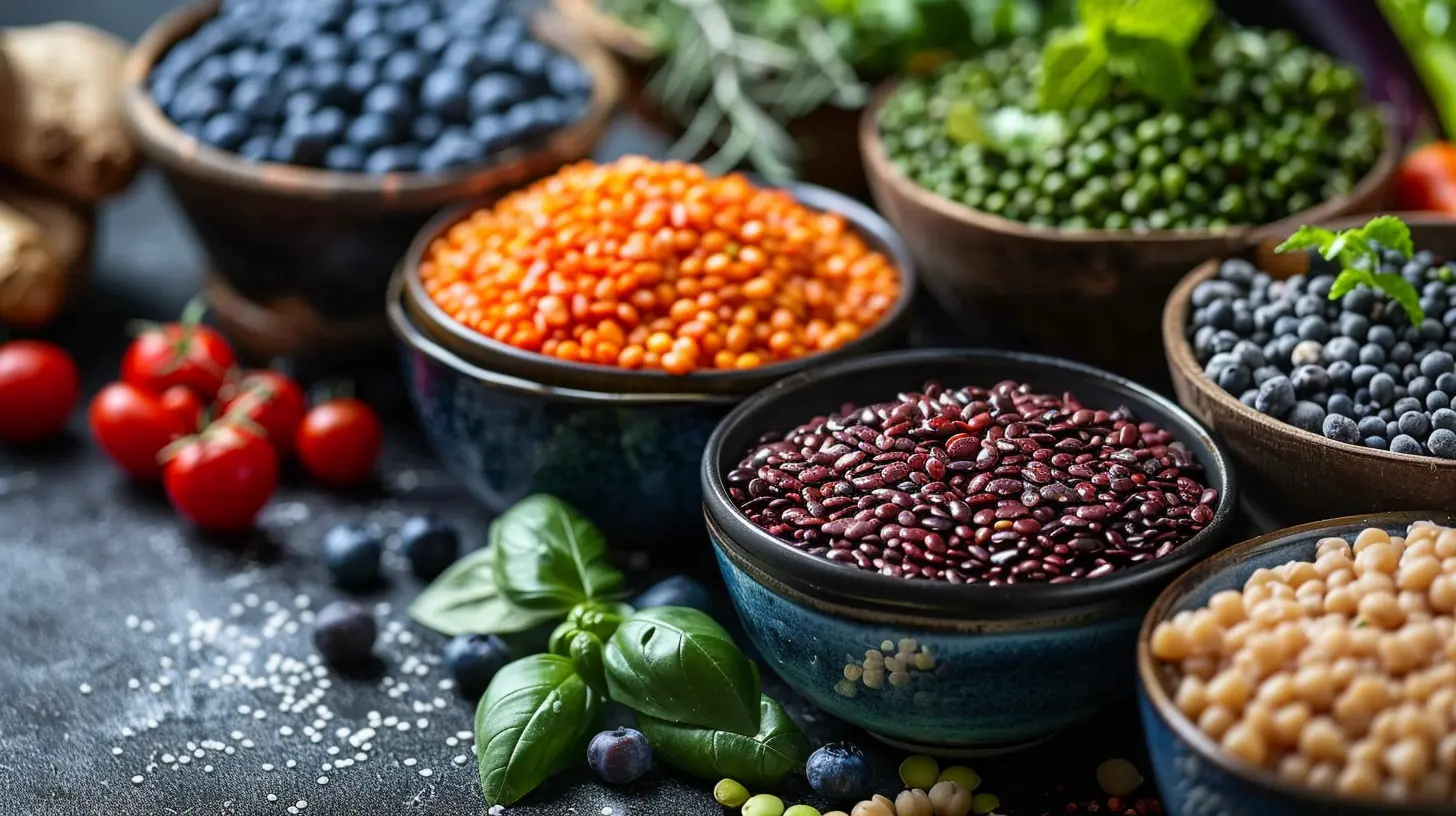
Why Protein Matters for Muscle Growth
Muscle building is all about breaking down and rebuilding fibers stronger than before. And protein? It’s the VIP guest at this muscle-building party. When you work out, your muscles experience tiny tears. Protein helps repair and grow them, making you stronger over time.The great news? You don’t need meat, eggs, or dairy to meet your protein needs. Plants offer an abundance of muscle-building nutrients, including essential amino acids your body craves.
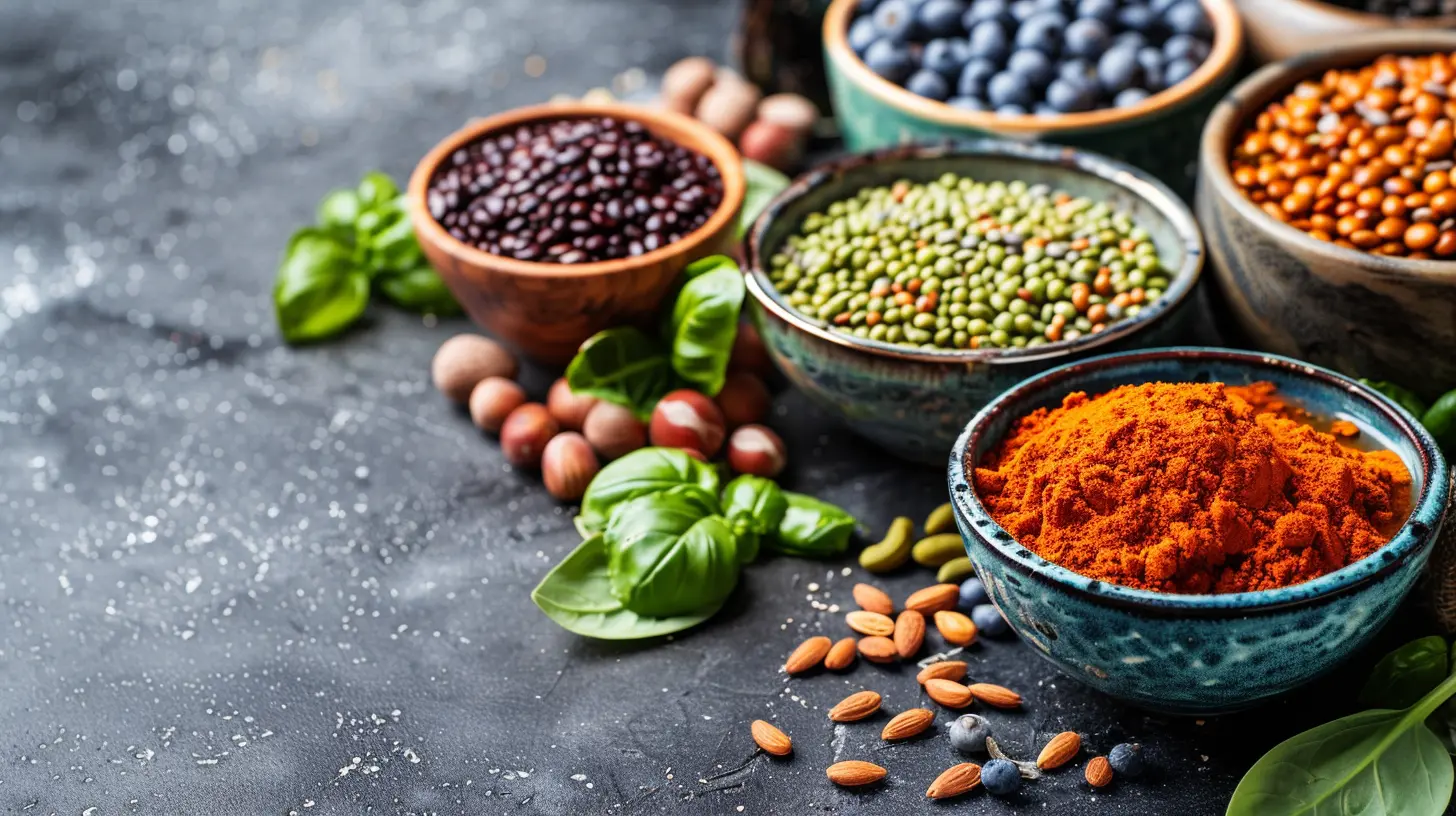
Can You Build Muscle on Plant-Based Proteins?
Absolutely! There’s a long-standing myth that plant proteins lack enough amino acids to support muscle growth. But here’s the truth: as long as you consume a variety of plant-based protein sources throughout the day, your body will get all the essential amino acids it needs.Many elite athletes and bodybuilders thrive on a plant-based diet. Ever heard of Venus Williams, Lewis Hamilton, or Patrik Baboumian? These legends prove that plants have plenty of power when it comes to strength and endurance.
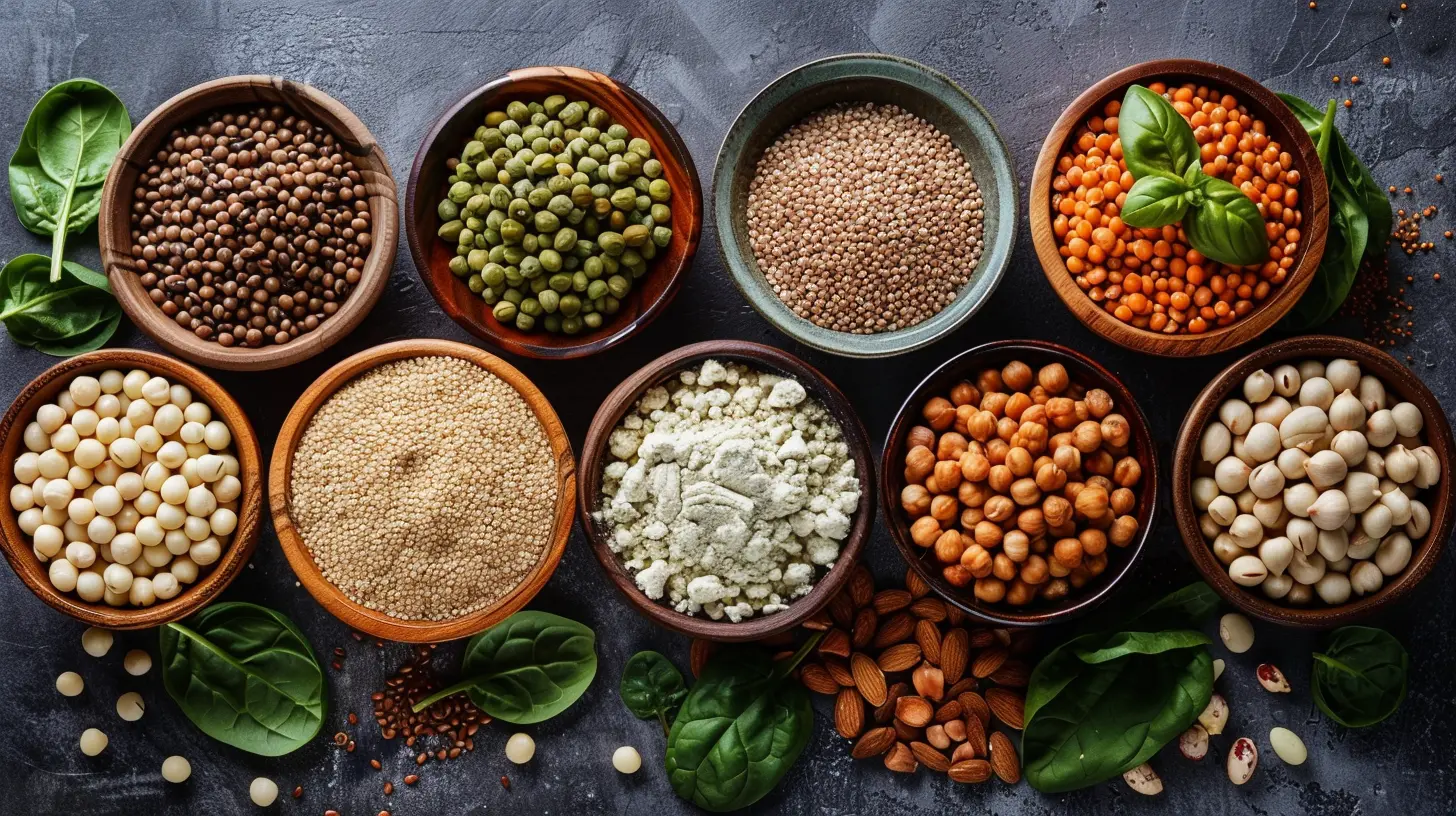
Best Plant-Based Protein Sources for Muscle Building
Let’s talk about the real deal—the best plant-based proteins that will help you grow lean, strong muscles.1. Legumes (Lentils, Chickpeas, Beans)
Legumes are a powerhouse of protein, fiber, and complex carbs. They help in muscle growth while keeping your digestion smooth. One cup of cooked lentils packs about 18 grams of protein—impressive, right?2. Tofu & Tempeh
Soy-based foods like tofu and tempeh are excellent sources of complete protein. Tempeh, in particular, has around 21 grams of protein per 100 grams and also contains gut-friendly probiotics.3. Seitan (Wheat Gluten)
If you’re not gluten-intolerant, seitan is a fantastic muscle-building food. A single serving (3.5 oz) delivers about 25 grams of protein—almost as much as chicken breast!4. Quinoa
Unlike most plant-based foods, quinoa is a complete protein, meaning it has all nine essential amino acids. It’s also loaded with magnesium, a crucial nutrient for muscle function.5. Nuts & Seeds (Almonds, Chia, Hemp, Pumpkin Seeds)
Hemp seeds, in particular, are a protein superstar, providing 10 grams of protein per 3 tablespoons. Chia and flaxseeds also offer a mix of protein, fiber, and omega-3s for an anti-inflammatory boost.6. Plant-Based Protein Powders
If you struggle to meet your protein needs, a good plant-based protein powder (pea, rice, or hemp-based) can be a game-changer. It’s an easy way to increase protein intake post-workout.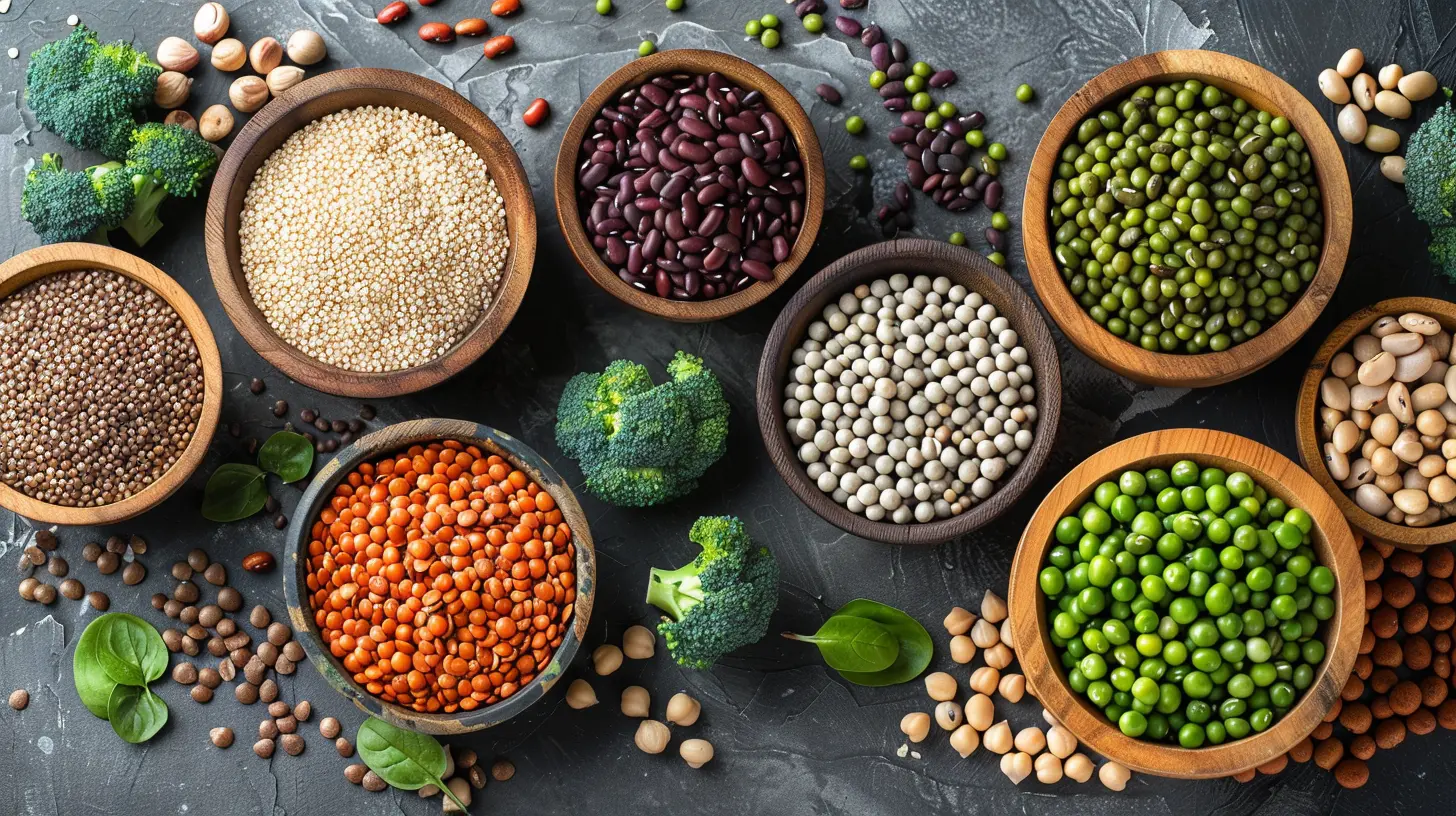
How to Maximize Muscle Growth on a Plant-Based Diet
Now that you’ve got your protein sources down, let’s focus on optimizing your muscle-building strategy.1. Eat Enough Calories
Muscle growth requires energy, so under-eating is a no-go. Make sure you’re consuming a caloric surplus, meaning more calories than you burn, to support muscle repair and growth.2. Track Your Protein Intake
Aim for around 1.6 to 2.2 grams of protein per kilogram of body weight per day. Apps like MyFitnessPal can help track your macronutrients to ensure you’re hitting your target.3. Prioritize Strength Training
Lifting weights is non-negotiable if you’re serious about muscle gains. Focus on compound movements like squats, deadlifts, bench presses, and pull-ups to stimulate multiple muscle groups.4. Optimize Your Meal Timing
Consuming protein-rich meals every 3–4 hours helps maintain muscle protein synthesis. Aim to have a high-protein meal or shake within an hour after your workout.5. Don’t Forget Carbs & Fats
Carbs are your muscles’ best friend when it comes to energy and recovery. Opt for complex carbs like brown rice, oats, and sweet potatoes. Healthy fats (avocados, nuts, olive oil) support hormone production and overall health.6. Stay Hydrated
Muscle recovery and growth require proper hydration. Dehydration can slow down performance and hinder progress. Drink at least 3-4 liters of water daily, especially if you’re training hard.7. Prioritize Sleep & Recovery
Your muscles grow when you rest, not while you’re in the gym. Aim for 7-9 hours of quality sleep every night. Incorporate rest days and activities like stretching or yoga to aid recovery.Common Myths About Plant-Based Muscle Building
Let’s bust some myths that keep popping up about plant-based muscle gains.1. "You Can’t Get Enough Protein on a Plant-Based Diet"
Wrong! With a variety of protein sources throughout the day, you can hit your protein goals easily.2. "Plant Proteins Are Inferior to Animal Proteins"
While some plant proteins may lack one or two essential amino acids, eating a diverse range of foods ensures you get all the essential nutrients.3. "You Need Dairy for Strong Bones and Muscle Recovery"
Calcium and recovery nutrients are abundant in plant-based foods like leafy greens, almonds, tofu, and fortified plant milks.4. "Vegan Diets Are Deficient in Key Nutrients"
Yes, vitamin B12, iron, and omega-3s require attention, but they can be obtained from fortified foods or supplements. A well-planned plant-based diet has everything your body needs.
Sample High-Protein Plant-Based Meal Plan
Need some inspiration? Here’s a simple yet effective meal plan to fuel your muscle-building journey.Breakfast:
- Tofu scramble with spinach, mushrooms, and whole grain toast- Chia pudding topped with hemp seeds and berries
Lunch:
- Quinoa and black bean salad with avocado and pumpkin seeds- Lentil soup with a side of whole-grain bread
Post-Workout Shake:
- Pea protein smoothie with banana, almond butter, and oat milkDinner:
- Stir-fried tempeh with brown rice and steamed broccoli- Chickpea curry with sweet potatoes and quinoa
Snack Options:
- Roasted chickpeas- Almonds and dark chocolate
- Hummus with veggies
Final Thoughts
Building muscle on a plant-based diet isn’t just possible—it’s incredibly effective when done right! By consuming enough protein-rich plant foods, prioritizing strength training, and ensuring proper recovery, you’ll be well on your way to achieving your fitness goals.So, are you ready to go plant-powered and get stronger than ever? The only thing left to do is hit the gym and fuel your body with the right foods!
all images in this post were generated using AI tools
Category:
Plant Based DietAuthor:

Tiffany Foster
Discussion
rate this article
4 comments
Morgan Kirk
This article offers valuable insights into building muscle on a plant-based diet. I appreciate the focus on diverse protein sources and the emphasis on whole foods. It challenges common misconceptions about plant protein and inspires me to explore new recipes. I'm excited to experiment and share my progress!
June 6, 2025 at 5:06 PM

Tiffany Foster
Thank you for your thoughtful comment! I'm glad you found the insights helpful and are inspired to explore new recipes. Best of luck on your muscle-building journey!
Finnian Mitchell
This article is a fascinating exploration of plant-based proteins for muscle building! I'm eager to learn more about how different sources, like legumes and grains, can effectively support muscle growth. It challenges traditional views and opens up exciting possibilities for fitness enthusiasts like me!
May 26, 2025 at 2:23 AM

Tiffany Foster
Thank you for your enthusiasm! I'm glad you found the article insightful. Exploring plant-based proteins truly offers exciting possibilities for muscle building. Stay tuned for more detailed insights on legumes, grains, and other sources!
Marie McKee
Great article! ✨ Embracing plant-based proteins is a fantastic way to build muscle while nourishing your body. Remember, every small step counts, and consistency is key! You've got this—let's flex those plant-powered muscles and show the world what strength really means! 💪🌱
May 22, 2025 at 4:31 AM

Tiffany Foster
Thank you! I’m glad you enjoyed the article. Absolutely, consistency and small steps are essential on the journey to building muscle with plant-based proteins! 💪🌱
Enid McCool
Great tips! Emphasizing diverse plant-based proteins can effectively support muscle growth and overall health. Thanks for sharing!
May 18, 2025 at 3:02 PM

Tiffany Foster
Thank you for your feedback! I'm glad you found the tips valuable. Embracing diverse plant-based proteins is key to building muscle and enhancing health!
